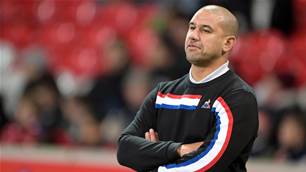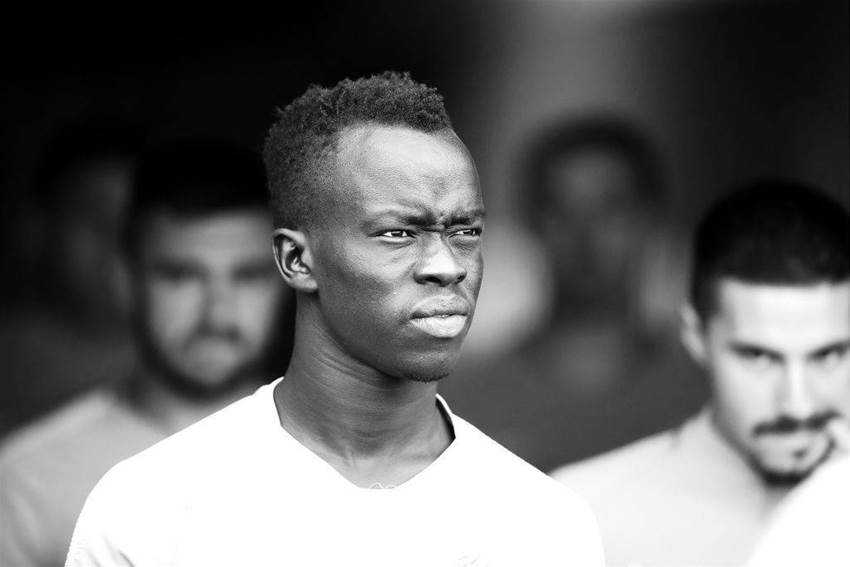From the air Kakuma in Kenya’s north, about 14 hours pot-holed drive from Nairobi, is almost reminiscent of the small mining towns that dot the Australian landscape.
One of the world’s oldest and largest refugee camps, Kakuma’s shining tin roofs and quaint tumbleweed fences cover over 31 kilometres of the Kenyan desert, providing the closest thing to home for 180,000 refugees from 19 countries.
But while the camp now boasts its own thriving markets, rudimentary bank, taxi service and even an organised football league – the Kakuma Premier League - if it seems like an oasis among the war-torn countries and humanitarian catastrophes surrounding it, it isn’t. Despite continual UNHCR development, the region still suffers from sandstorms, malnutrition, communicable diseases and malaria.
And when Awer Mabil was born there in 1995, it was a lot worse.
"We built a hut out of mud," he told BBC World Football in November last year. "Probably the size of one bedroom in a normal house in the Western world, as you would call it.
"But you know it's not your home. There were four of us living in it - me, my mum, my brother and sister. We got food from the UN once a month.
"We had one meal a day, which was dinner,” he said later. “There was no such thing as breakfast or lunch.”
At 11-years-old Mabil and his family relocated to Australia as part of a humanitarian program. His tale of displacement is a familiar narrative in Australian football, similar to that of Thomas Deng, Elvis Kamsoba and Kenny Athiu – but relatively few know it. Even fewer know the challenges he faced when he arrived…
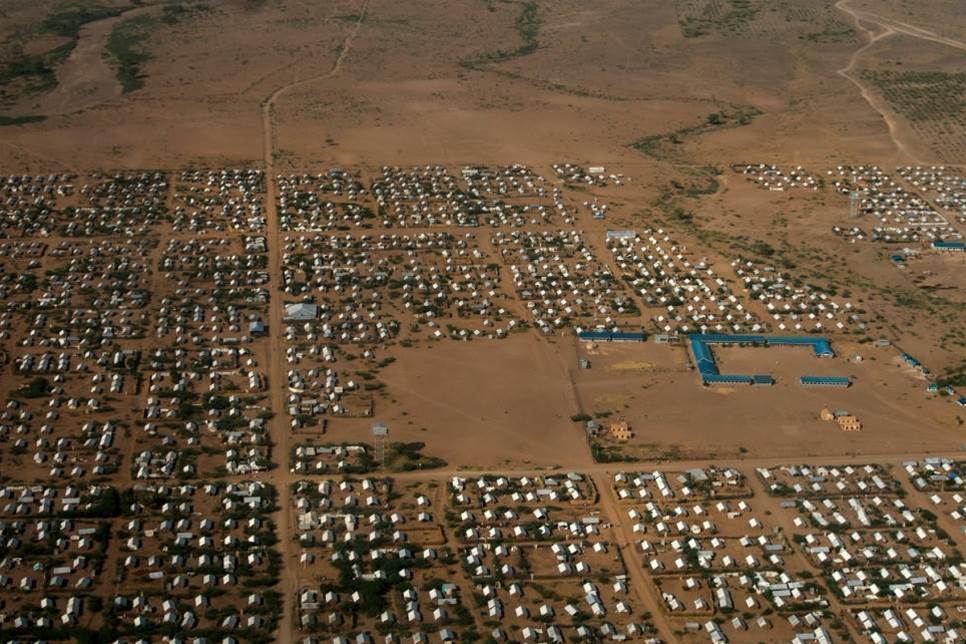
* * *
2019 promised to be such a bright year for Australian football. New FFA board, a Women's World Cup tilt, an Asian Cup defence, new expansion clubs on the horizon...it finally seemed as if the game was capturing the round-ball shaped spotlight for all the right reasons.
To say the least, things haven't panned out that way. While everything from grassroots crises to boardroom controversies have shaken the game's very foundations, for the Socceroos’ role-models, the end of the teenies (noughties…teenies?) haven't fared much better.
Aaron Mooy’s already been relegated from England’s top flight, Mat Ryan’s only holding on by a thread. Mat Leckie, Daniel Arzani and Tom Rogic's campaigns have been wrecked by injury, while in the land of clogs and windmills, Trent Sainsbury and Aziz Behich have barely featured.
But as April lumps into May and even greater challenges emerge on the horizon, there is one bright spark making waves in Aussie football for all the right reasons. You already know who we’re talking about.
The 23-year-old Kenyan refugee-turned-Socceroos poster boy exploded onto the scene in 2015 at Adelaide United, and like many young Aussie footballers, shot off to Europe at the first opportunity, joining rising Danish powerhouses, FC Midtjylland.
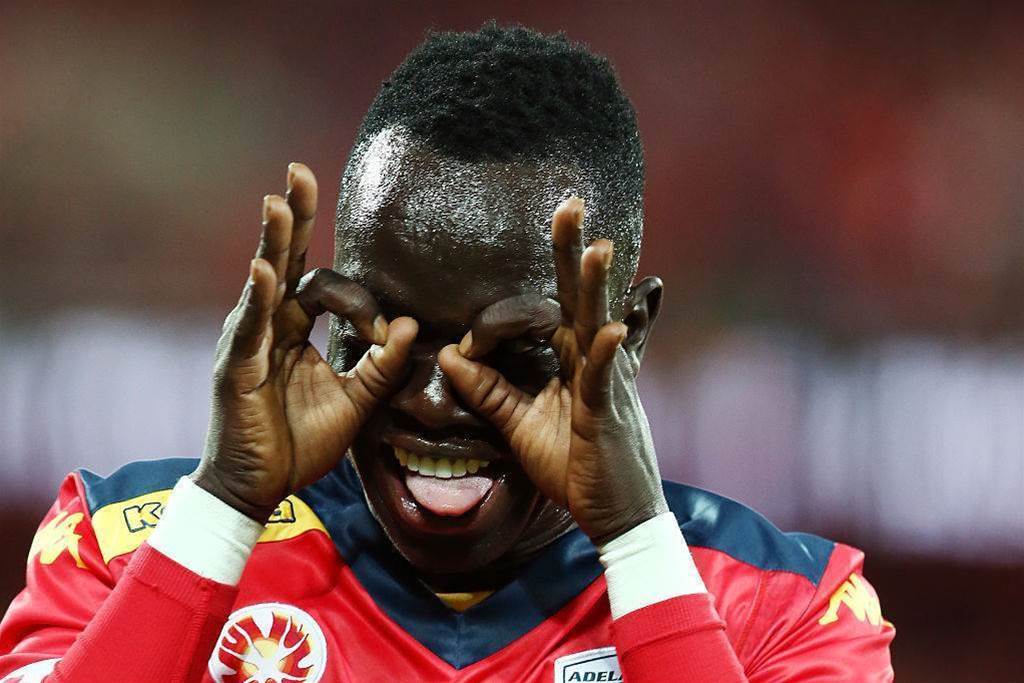
It was here on the Jutland peninsula that Mabil, barely 20-years-old at the age of his departure (and only nine years after he'd first arrived in Australia) fought where most others fail. He struggled through a tough debut season and two years on loan; the latter a make-or-break campaign at Portugese club Pacos de Ferreira.
As the likes of Jason Davidson and Dylan McGowan can attest, Pacos – and Portugese football in general - is an appealing but intensely difficult beast. Mabil, however, made 26 appearances in a relegated team and returned to the Danish champions a set-in-stone starter.
Ultimately Midtjylland was an apt place for Mabil to join: the Danish Superliga has become a hotspot for Aussies abroad (Mabil recently beat fellow Socceroo Mustafa Amini’s AGF, two weeks prior it was McGowan's Vendyssel FF) and it's easy to see why.
In addition to Denmark's laid-back culture and relative English fluency, it's both an accessible league for Australians and a forgiving one, offering mid-level talents the opportunity to carve out a reliable European career.
The Superliga coincidentally follows a very similar format to Australia - a 26 game regular season, followed by a top-six contended finals series. And while it's debatable whether the Superliga's quality is markedly higher than the A-League's, Denmark is a gateway to the lucrative European mainland.
But there is more to Midtjylland than merely a stepping stone over the yawning chasm between Australian football and Europe's best.
The club's emphasis on youth development is particularly notable. Breaking from its historically stable mid-table existence, over the past decade a sterling youth academy has shot Midtjylland up both the Danish and European ranks (they now sit directly above former French champions Lille and Bordeaux in the UEFA club coefficient).
This is a club that, while Mabil was on loan to Esbjerg, beat Manchester United in the Europa League. Of particular interest are their partnerships with over 100 youth football clubs as far away as Nigeria.
Reigning Danish champions, Midtjylland sit five points behind traditional powerhouses FC Copenhagen mid-way through the Danish Championship Round. In Denmark, following the conclusion of the regular season, the top six teams each play each other in a home-and-away fixture, with end of season points tally, rather than a Grand Final, determining the champion.
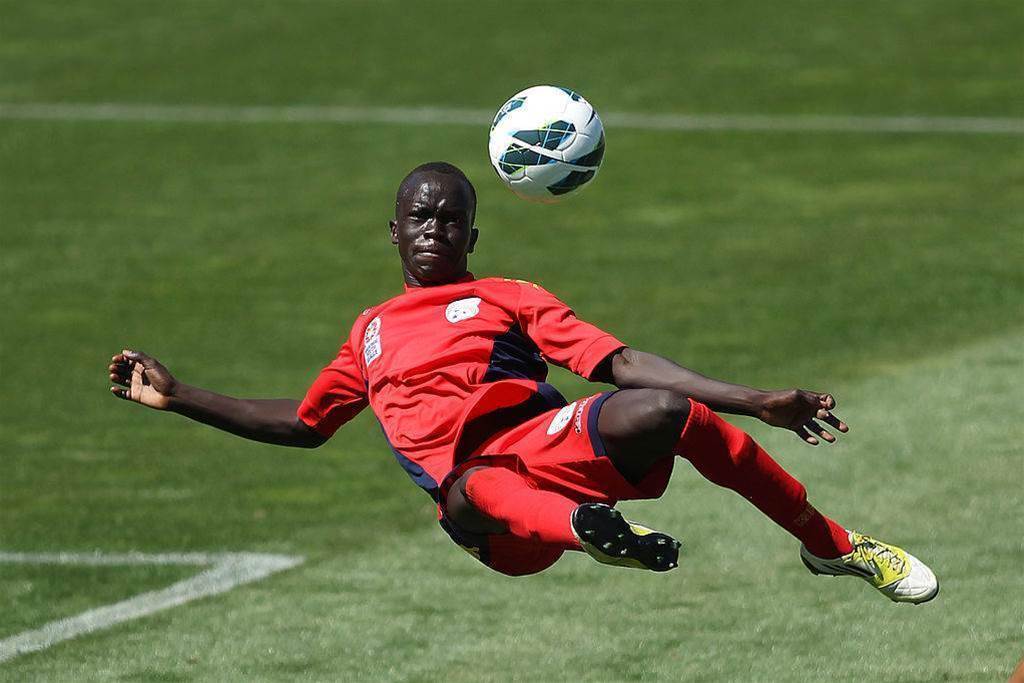
Midtjylland will need to steal points off their capital-opposition to ensure one Socceroo this year wins a European title. However Mabil also has a chance at silverware – and a possible Danish double – with when they face Brondby in the Danish Cup final on April 18.
The Aussie’s starry European exploits have won him rave admirers in Denmark and a trophy-laden conclusion would be just-desserts. But his continental achievements still pale in comparison to the larger impact he’s made upon the football world this season.
The Aussie star began an electric few months by scoring on his Socceroos debut against Kuwait in October, then backed it up with another strike against Oman. Within two months Mabil had usurped 75-cap veteran Robbie Kruse for a Socceroos starting role in the Asian Cup. He ultimately starred in the United Arab Emirates, contrasting a dismal Australian performance by scoring against Palestine and Syria.
He started every match bar the quarter-final which Australia lost. Yet despite Australia’s challenges, Mabil still managed to draw attention away from football and onto his own effervescent approach to life.
"It's good to score," he explained post-match, after clutching his hands to his face following a belting strike against the Syrians. "A lot of people suffer from mental health so that celebration is to bring peace to the mind.
"You just need to talk to someone. By covering the mouth, I mean that you need to talk - that's the story behind that.”
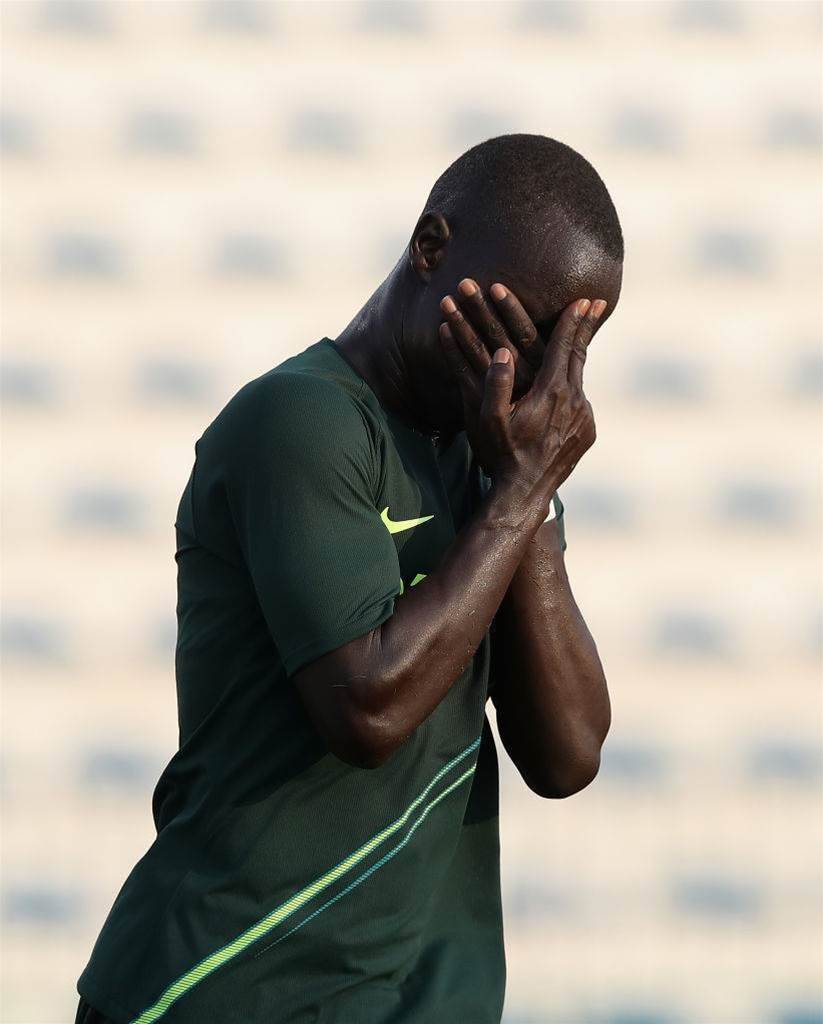
His attitude has earned fans in high places; Spanish superstar David Villa is a big fan of the youngster, posting multiple photos and exchanges on social media with the 23-year-old. He even uploaded a photo with Mabil's Midtjylland shirt and was one of the first to congratulate him on his stunning Asian cup performances.
But no plaudits come higher than FIFA itself – the flashy winger won the 2018 FIFPro Merit Award for his work providing football gear, laptops, incubators, sanitary kits, education and healthcare assistance to Kakuma refugees through the charity he and his brother founded, Barefoot to Boots.
“My aim is to make refugees’ lives easier, to make them realise that their dreams can come true,” Mabil said.
“They just want an opportunity to be seen and not be isolated.”
Barefoot to Boots began as the brainchild of Mabil and his brother, Awul Bul, after the pair returned to Kakuma to visit the camp in 2014. The foundation was then formulated by successful businessman and former Adelaide United board member, Ian Smith.
Smith met with Mabil in 2014 to discuss their plans for a refugee-focused charity and later told the Adelaide Advertiser that the then-18-year-old made quite an impact.
“It was staggering,” Smith said.
“To have the maturity to think like that is quite remarkable, and that’s always remained the case with Awer.”
Barefoot to Boots, which also boasts former AFC executive Moya Dodd in its boardroom, has since provided more than 2000 kilograms of football boots and kits to the refugee camp.
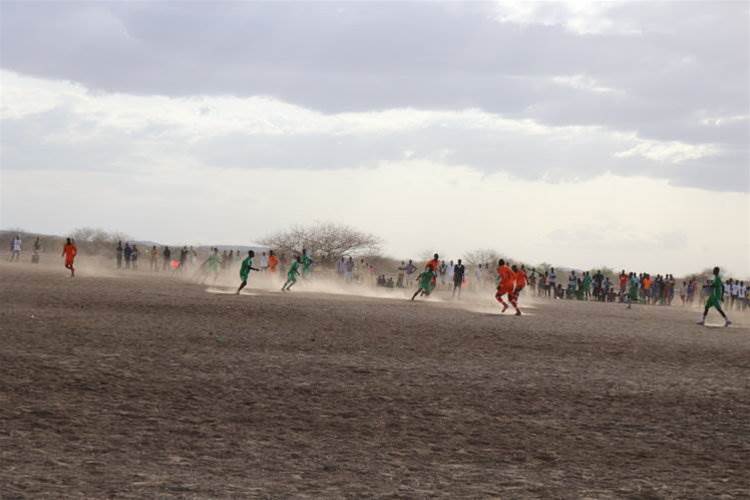
***
After such an arduous climb to the precipice of football stardom – from wrapping rubbish in socks to form makeshift footballs in Kenya, to earning $50 a week as an Adelaide United junior - it should be easy for Mabil to focus on himself.
But there’s been no stage in the Australian’s life that’s truly provided the ‘happy ending’ of an otherwise storybook rise to success. While his story confirms the rewards of work ethic, and the value of attempting to be more than just a footballer, it also dispels the myth of a truly safe haven.
“I have faced (racism) a lot,” Mabil told the BBC.
“Once, when I was 16, I came home and one of my neighbours attacked me. The first thing I did was shut the front door and hide my siblings. I was talking to these guys while the door was shut, I said ‘Go away.’ They kept saying ‘Go back to your own country.’
“Apart from that, you experience day-to-day things like when you’re walking along the road there are people in cars beeping you and saying things. That’s normal.”
From personal attacks to devastating misfortune, just hours before Mabil took to the field in Australia’s final Asian Cup match, his 19-year-old sister, Bol, was killed in a car crash in Adelaide’s north.
“This has taught me not to worry about the bulls**t in your life, the political stuff ... black, white, this, that,” he told The World Game after Bol’s death.
“That’s all just there for us to fight against each other. Things like that I don’t take seriously any more.”
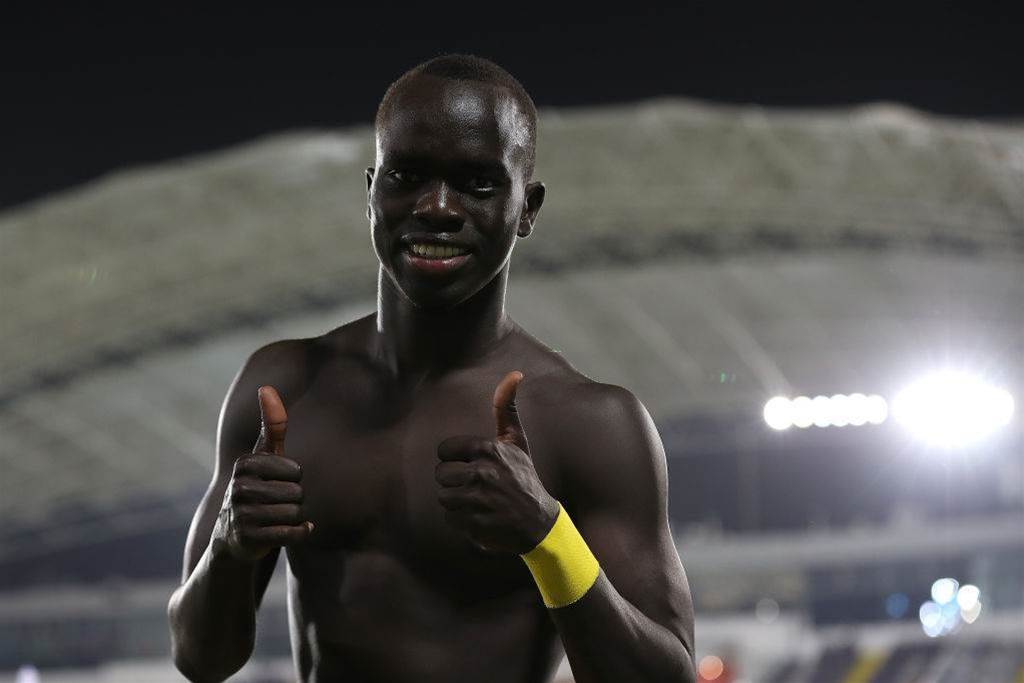
Exhibiting uncompromising strength, Mabil has continued to star in Denmark after the latest in a series of seemingly unending obstacles, wrapping up his 21st appearance of the season in Midtjylland’s final regular-season fixture against Sonderjyske.
With five goals and 10 assists, he’s set to play a key role in what promises to be a clear standout among Australians at football’s pinnacle.
Which is a telling reminder of the (perhaps missing the point) argument following Tim Cahill's retirement. Who was going to fill the billboards, lure the media and demand the attention of loungerooms around Australia?
Perhaps now more than ever Australian football need a self-proclaimed “man for the people." An endless force of optimism in the face of overwhelming negativity.
"If I was an Australian fan – which I am, but I'm a player also – I'd be excited,” Mabil exclaims.
“I just can't wait for what's in store for Australian football.”
Related Articles
.jpeg&h=172&w=306&c=1&s=1)
Socceroos prodigy returns to A-League after horror run
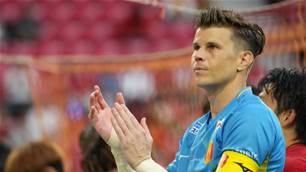
Star keeper's exit heralds hero's return at A-League giant
